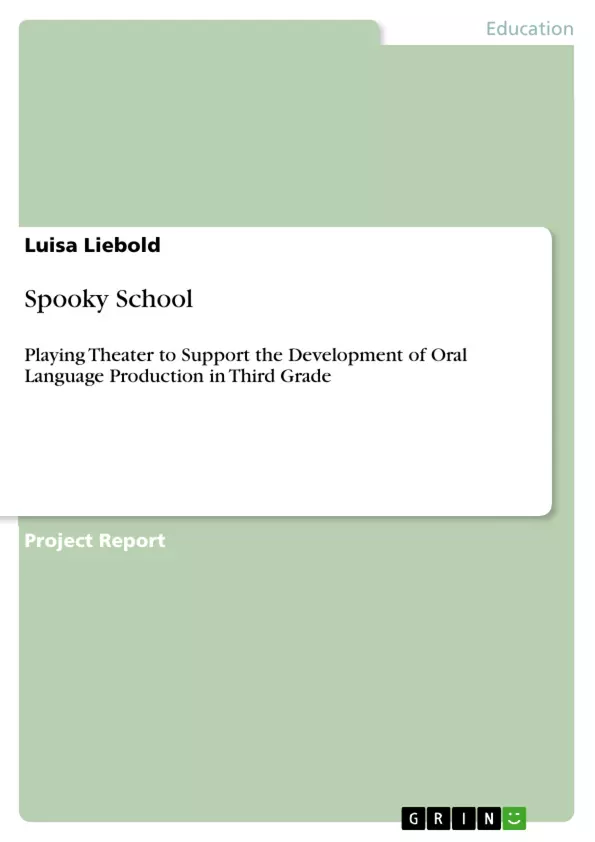I am a teacher who strongly believes in the idea of teaching a second language as early as possible. I am a teacher who is often surprised about how well students understand the foreign language and how easily they get used to me speaking to them in the foreign language, only with the help of facial expressions and gestures and without ever using their mother tongue. However, I am also a teacher who feels that while giving a lot of linguistic input to the students, they do not give back an equally high amount of linguistic output.
So after getting to know my new third grade students, we started the school year off with a project that would encourage them to talk more in the foreign language and not just be the recipients of it. And what better way than doing a theater project?
In the following paper I would like to introduce this project in more detail. In the beginning, I will show how the teaching unit was planned taking into consideration the school and class situation, the topic in general and findings about project work and the skill of speaking. After that, my focus is on documenting the teaching unit. Finally, I will give a review of the theater project by looking into what went well, what did not and whether or not the goal to develop oral language production was achieved.
Inhaltsverzeichnis (Table of Contents)
- Introduction
- Planning the Teaching Unit
- Situation
- Didactic Analysis
- Finding a Topic
- Project-Oriented Learning
- Speaking – A Complex Skill
- Curriculum
- Documentation of the Teaching Unit
- Methodical Analysis
- Project Work in Action
- Review
- Sources
- Appendix
Zielsetzung und Themenschwerpunkte (Objectives and Key Themes)
This paper aims to document and analyze a theater project designed to encourage third-grade students to produce more spoken English, addressing the common challenge of eliciting linguistic output in foreign language learners. The project takes into account the specific classroom setting, the characteristics of the students, and the principles of language acquisition.
- Developing oral language production in young English language learners
- Integrating the English language into everyday school life through meaningful activities
- The importance of monolingualism in the classroom and the role of the teacher as a language model
- Using project-based learning to enhance language acquisition
- The application of “understanding listening” and “meaningful speaking” principles in foreign language teaching
Zusammenfassung der Kapitel (Chapter Summaries)
- Introduction: Introduces the project, highlighting the challenge of eliciting oral language production in young language learners and the rationale for choosing a theater project.
- Planning the Teaching Unit:
- Situation: Provides a detailed description of the school, the class, and the students, emphasizing their characteristics and learning needs.
- Didactic Analysis: Discusses the theoretical framework for the project, outlining principles of language acquisition and the importance of meaningful interaction, activity-oriented tasks, and a monolingual approach.
- Documentation of the Teaching Unit: Presents the methodological analysis and implementation of the theater project.
Schlüsselwörter (Keywords)
Oral language production, foreign language teaching, project-based learning, third grade, classroom situation, language acquisition, “understanding listening,” “meaningful speaking,” monolingualism, teacher as a language model.
- Citation du texte
- M.A. Luisa Liebold (Auteur), 2014, Spooky School, Munich, GRIN Verlag, https://www.grin.com/document/269003



